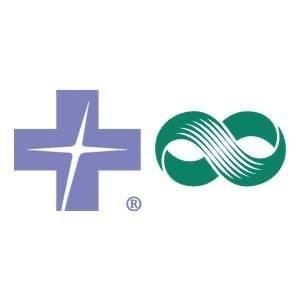The Admissions Nurse is available to perform professional nursing care activities with persons in the admissions process. Role functions are governed by the Wisconsin Nurse Practice Act, the Wisconsin Administrative Code, professional standards for nursing practice, and the corresponding policies and procedures of Rogers Memorial Hospital (RMH). The Admissions Nurse seeks consultation with other members of the health team as the patient’s condition and treatment goals warrant.
Schedule: Saturday/Sunday, 11:00am-11:00pm
Job Duties & Responsibilities:
Complete and document initial screenings and assessments.
Collect information to complete, or clarify, information on the Request for Services Screening tool. In particular, for screening completed for:
- eating disorders
- addictions
- older adults
- cognitive/developmental delays
- medical conditions
Collect information (in the Admissions Department, when possible) for the nursing admission assessment including:
- patient strengths and limitations that can be addressed in reaching health goals.
- cultural, spiritual, and ethnic factors that may impact on patient’s course of treatment;
- patient needs that are to be addressed at discharged;
- medical/physical status;
- history of medication compliance, reactions, and current schedule; and
- age-specific data regarding the patient’s individual needs.
Involve patient’s support systems (family, friends) in assessment.
- Observe and document the patient’s interaction with those accompanying the person.
- Obtain assessment data from support systems, when appropriate, regarding the patient’s history and individual needs.
Act as an advocate for patients.
- Explain patient’s rights to they can understand and obtain appropriate signatures.
- provide the patient with information and obtain their signature on necessary consents.
- Act as a patient advocate, use knowledge of patient rights and responsibilities, and protect patient’s privacy and confidentiality.
Complete other admission procedures as needed within the department (including Request for Services Screening, insurance verification/pre-authorizations, patient registration).
- Assist in the patient orientation process.
- Know and employ Hospital policies and procedures regarding unit safet6y, the necessity of gown/contraband search on admission, and carry out the process in a respectful manner.
- Remain sensitive to individual patient/family stressors upon admission while providing pertinent unit information.
Participate in the screening of persons requesting services.
- Identify potential care problems.
- Clinical disease management
- Specific profiles
- Medical equipment
- Ongoing therapy needs.
- Review identified care problems with program manager and physician.
- Provide clinical resource to admissions.
Maintain qualified medical professional (QMP) designation.
- Provide medical screening for unscheduled persons presenting for treatment.
- Provide medical screening for persons in admissions who have potential medical concerns.
- Assure that care screenings, stabilization, and transfers from admissions are delivered according to Emergency Medical Treatment and Labor Act (EMTALA) and associated regulatory requirements.
Be aware of the availability within programs.
- Understand program-specific admission criteria.
- Track issues of clinical or physical capacity.
Adhere to the Nursing department and Hospital’s standards of nursing practice and standards of patient care.
- Protect patients, visitors, and staff from environmental hazards by adhering to safety and infection control standards.
- Participate in continuing education and in-service programs to increase clinical competence and to meet professional needs and goals.
- Report information obtained from continuing education programs to unit staff.
- Attend 100% of required in-services, as scheduled.
Participate in the Performance Improvement program on an ongoing basis.
- Assist in the development and implementation of standards of care, such as:
- safety level of patient.
- safety/hazardous items.
- Identify problems with unit systems, communication patterns, and unit resources that impact on patient care and suggest possible solutions to the Admissions manger.
- Serve on one unit-based committee or participate in unit-based projects on an ongoing basis, as appropriate and available.
- Participate as a project leader.
Carry out leadership function in patient care, staff operations, and department organization.
- Contribute to Nursing and Hospital functions through active participation on committees and attendance at designated meetings.
- Serve as a role model for peers and others in effective use of communication, teaching, and leadership skills.
Participate in projects, tasks, and continuing education opportunities to improve professional skills and unit/department systems.
- Develop goals and objectives for professional growth and discuss ways to achieve them with Admissions manager.
- Take initiative to develop professional skills through continuing education.
- Discuss, on a regular basis, progress toward work improvement goals with Admissions manager.
- Seek out projects and/or extra tasks to complete, based upon the needs of the department or the immediate shift.
Additional Job Description:
Education/Training Requirements:
- Bachelor’s degree in Nursing (BSN) preferred. Registered Nurse licensed by Wisconsin State Board of Nursing. License must be in good standing with the Wisconsin State Board of Nursing.
- American Health Association Healthcare Provider CPR certification or American Red Cross Professional Rescue is required within thirty (30) days of date of hire. Annual re-certification is required.
- Formal training in management of the aggressive patient is required within sixty (60) days of date of hire. Annual re-certification is required.
- Previous psychiatric experience with children, adolescent and adults is preferred.
- Must be deemed competent to serve as a Qualified Medical Person (QMP), as outlined in the Medical Staff Bylaws of Rogers Memorial Hospital. This designation is evaluated and potentially renewed at least annually, based on results of the QMP job competency.
The System also includes Rogers Behavioral Health Foundation, which supports patient care, programs, and research; and Rogers InHealth, an initiative that works to eliminate the stigma of mental health challenges.









